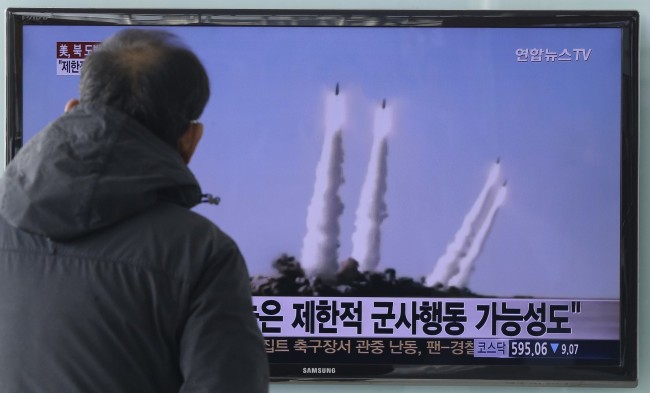Interoperable missile defense architecture : official
By Shin Ji-hyePublished : Feb. 22, 2015 - 10:04
Building an interoperable missile defense system is a major focus the United States places on trilateral cooperation with its two key Asian allies, South Korea and Japan, a senior American diplomat said.

Principal Deputy Assistant Secretary of State Anita Friedt made the remark at the Japan Institute of International Affairs in Tokyo earlier Friday, echoing what Assistant Secretary Frank Rose said during a recent trip to Seoul, according to the State Department.
"With regards to trilateral cooperation among the United States, Japan, and the ROK ... Developing an interoperable regional missile defense architecture is an important future area of focus in light of the increasing nuclear and missile threats posed by North Korea," she said.
"We believe that future trilateral cooperation between the United States, the ROK, and Japan can positively impact our deterrence efforts against North Korean aggression and send a powerful message of deterrence to the DPRK (North Korea)," she added.
The U.S. wants to build a regional missile defense with South Korea and Japan in a move that critics say is aimed not only at countering North Korean threats, but also keeping China in check.
Seoul has said it will build its own Korean Air and Missile Defense System (KAMD) in a way that is interoperable with the U.S. system.
Friedt also said the U.S. is very pleased with a trilateral military intelligence sharing agreement signed late last year and said the U.S. looks forward to "building on this success, and to broadening and deepening trilateral cooperation with our two strongest allies in Northeast Asia."
Last month, the three countries signed a memorandum of understanding that calls for voluntary sharing of military secrets on North Korea's nuclear and missile programs between the three countries.
The deal paved the way for Seoul and Tokyo to share such intelligence via the U.S. after the two countries failed to strike a bilateral intelligence sharing deal in 2012 due in part to negative public sentiment in South Korea about signing such a pact with the former colonial master.
In Seoul, the defense ministry said Saturday that the deal was not signed on the premise of future cooperation on missile defense in this part of the world, particularly on the Korean Peninsula. (Yonhap)



![[AtoZ into Korean mind] Humor in Korea: Navigating the line between what's funny and not](http://res.heraldm.com/phpwas/restmb_idxmake.php?idx=644&simg=/content/image/2024/04/22/20240422050642_0.jpg&u=)
![[Exclusive] Korean military set to ban iPhones over 'security' concerns](http://res.heraldm.com/phpwas/restmb_idxmake.php?idx=644&simg=/content/image/2024/04/23/20240423050599_0.jpg&u=20240423183955)



![[Graphic News] 77% of young Koreans still financially dependent](http://res.heraldm.com/phpwas/restmb_idxmake.php?idx=644&simg=/content/image/2024/04/22/20240422050762_0.gif&u=)
![[Herald Interview] Why Toss invited hackers to penetrate its system](http://res.heraldm.com/phpwas/restmb_idxmake.php?idx=644&simg=/content/image/2024/04/22/20240422050569_0.jpg&u=20240422150649)






![[Exclusive] Korean military to ban iPhones over security issues](http://res.heraldm.com/phpwas/restmb_idxmake.php?idx=652&simg=/content/image/2024/04/23/20240423050599_0.jpg&u=20240423183955)



![[Today’s K-pop] Ateez confirms US tour details](http://res.heraldm.com/phpwas/restmb_idxmake.php?idx=642&simg=/content/image/2024/04/23/20240423050700_0.jpg&u=)